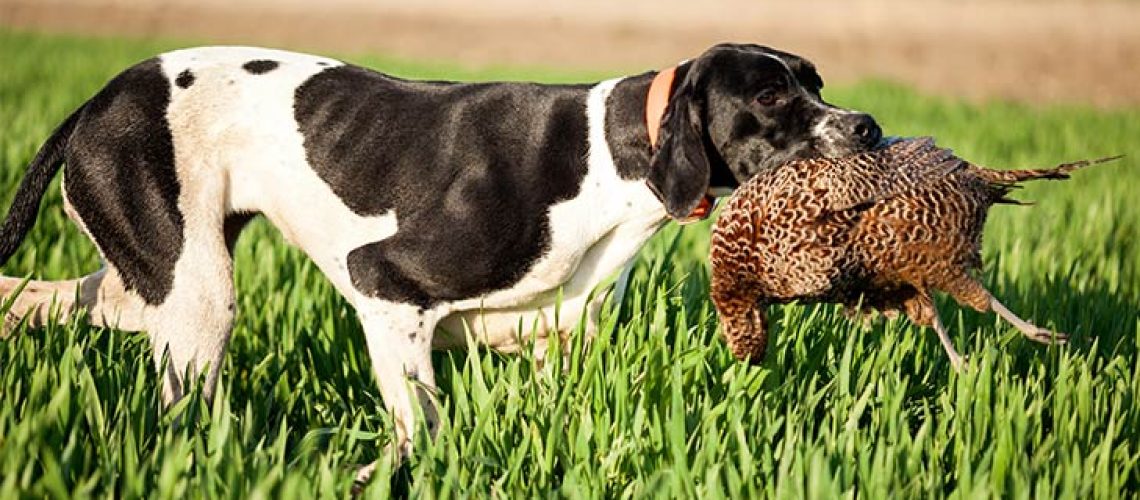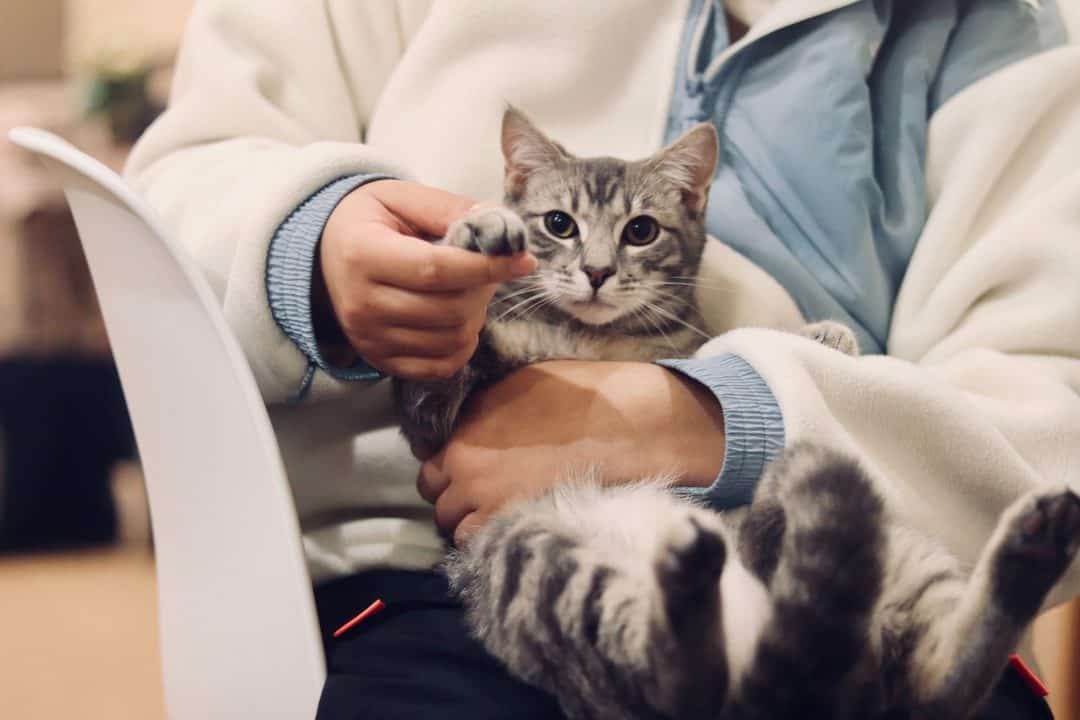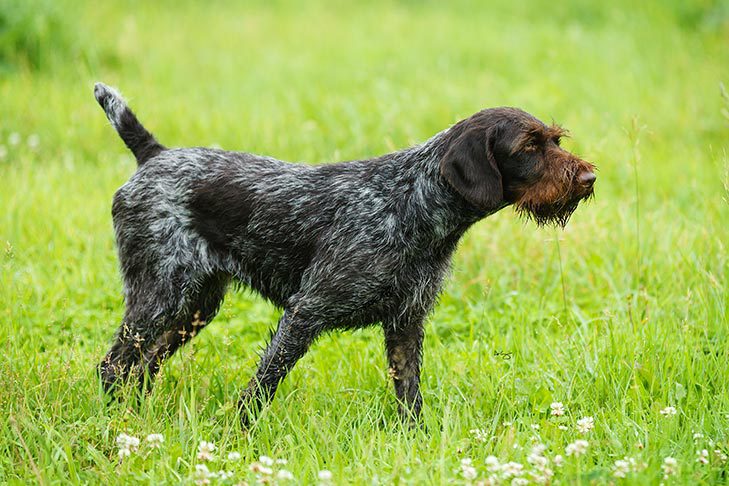Key Takeaways:
- Understanding a dog breed's characteristics is essential for providing proper care and meeting their unique needs.
- Different dog breeds have varying energy levels, exercise requirements, and temperament traits that should be considered when choosing a pet.
- Grooming needs can vary greatly among different dog breeds, so it's important to research and understand the specific grooming requirements of a particular breed.
- Training methods may need to be tailored to suit the intelligence level and learning style of a specific dog breed.
- Health issues and potential genetic predispositions can differ among dog breeds, so regular vet check-ups and proper preventive care are crucial for maintaining their overall well-being.
Are you a dog lover? If so, get ready to embark on an exciting journey into the world of Pointer dog breeds! Exploring the characteristics and care of these incredible canines will not only deepen your understanding of our furry friends, but it will also equip you with valuable knowledge that can enhance your relationship with your own four-legged companion. Whether you're considering getting a Pointer or simply curious about this breed, this topic is essential for anyone who wants to provide the best care possible for their canine friend. So, let's dive in and discover the fascinating world of Pointers together!
Common Characteristics of Pointer Dogs
Physical Appearance
Pointer dogs are known for their athletic and muscular build. They have a lean body with a deep chest, giving them the ability to cover long distances effortlessly. Their coat is short and dense, providing protection from various weather conditions. Pointers come in a variety of colors, including liver, black, lemon, and orange. One distinctive feature of pointer dogs is their long, elegant tail that tapers towards the end.
Temperament
Pointers are intelligent and friendly dogs that make excellent companions. They are known for their loyalty and devotion to their families. These dogs have a gentle nature and get along well with children and other pets when properly socialized. Pointers are eager to please and respond well to positive reinforcement training methods. They have a high energy level and require regular exercise to keep them mentally stimulated.
List of Common Characteristics:
- Athletic build with a lean body
- Short and dense coat
- Variety of colors including liver, black, lemon, and orange
- Long tail that tapers towards the end
- Intelligent and friendly temperament
- Loyal and devoted to their families
- Gentle nature and good with children and other pets when properly socialized
- Respond well to positive reinforcement training methods
- High energy level requiring regular exercise
The Origin and Purpose of Pointers
Origin
Pointers have a rich history dating back several centuries. They were originally bred in England for the purpose of assisting hunters in locating game birds by "pointing" towards their location. The breed's origins can be traced back to Spanish pointers brought to England in the 17th century. Over time, English breeders refined the breed through selective breeding to enhance their hunting abilities.
Purpose
The primary purpose of pointer dogs is to assist hunters in locating and flushing out game birds. Their keen sense of smell allows them to detect the scent of birds from a distance, and their pointing behavior alerts hunters to the bird's location. Once the bird is flushed out, pointers are trained to retrieve it for the hunter. Pointers are highly skilled in this role due to their natural instincts and athleticism.
The Importance of Pointers in Hunting:
- Assist hunters in locating game birds
- Keen sense of smell for detecting bird scent
- Pointing behavior to indicate location to hunters
- Skilled retrievers once the bird is flushed out
- Natural instincts and athleticism contribute to their hunting abilities
Caring for Your Pointer Dog: Tips and Guidelines
Feeding and Nutrition
Providing your pointer dog with a balanced diet is essential for their overall health and well-being. Choose a high-quality dog food that meets their specific nutritional needs. The amount of food will depend on factors such as age, activity level, and metabolism. It's important not to overfeed your pointer as they can be prone to weight gain.
Grooming
Pointers have a short coat that requires minimal grooming. Regular brushing helps remove loose hair and keeps their coat looking shiny. Bathing should only be done when necessary using a mild dog shampoo. Additionally, check your pointer's ears regularly for any signs of infection or wax buildup.
Veterinary Care
Regular veterinary check-ups are crucial for maintaining your pointer's health. Vaccinations should be kept up-to-date, and preventive measures such as flea and tick control should be implemented. It's also important to schedule dental cleanings as recommended by your veterinarian.
Important Care Tips:
- Provide a balanced diet with high-quality dog food
- Avoid overfeeding to prevent weight gain
- Regular brushing to remove loose hair
- Bathing when necessary with mild dog shampoo
- Check ears regularly for signs of infection or wax buildup
- Schedule regular veterinary check-ups and vaccinations
- Implement preventive measures for flea and tick control
- Schedule dental cleanings as recommended by your veterinarian
The Ideal Environment for a Happy Pointer Dog
Space Requirements
Pointer dogs thrive in environments that provide ample space for them to exercise and explore. They are active dogs that require a large, securely fenced yard where they can run freely. If living in an apartment or smaller space, it's important to ensure they receive sufficient daily exercise through walks, runs, or visits to a nearby dog park.
Climate Considerations
Pointers have a short coat that provides minimal insulation against extreme weather conditions. They are more suited to moderate climates and may require additional protection such as coats or sweaters during colder months. In hotter climates, it's essential to provide shade and fresh water to prevent overheating.
Social Interaction
Pointers are social dogs that thrive on human companionship. They enjoy being part of the family and should not be left alone for extended periods of time. Regular socialization with other dogs and exposure to different environments is also important for their overall well-being.
The Ideal Environment:
- Large, securely fenced yard for ample exercise
- Sufficient daily exercise if living in smaller spaces
- Moderate climate with additional protection in extreme weather conditions
- Shade and fresh water provided in hotter climates
- Regular social interaction with humans and other dogs
Pointers: Their Compatibility with Children and Other Pets
Pointers as Family Dogs
Pointers are known for their friendly and gentle nature, making them great companions for families with children. They have a patient temperament and can tolerate the playful antics of kids. However, it is important to teach children how to interact properly with dogs to ensure a harmonious relationship. Supervision is crucial, especially when young children are involved, as Pointers can be quite energetic and may accidentally knock over small kids in their excitement.
Pointers and Other Pets
When it comes to compatibility with other pets, Pointers generally get along well with other animals if properly socialized from an early age. They have a natural hunting instinct, so it's important to introduce them to other pets gradually and under controlled circumstances. With proper training and supervision, Pointers can coexist peacefully with cats, smaller dogs, and even smaller animals like rabbits or guinea pigs.
Daily Exercise Requirements for Pointers
The Need for Physical Activity
Pointers are highly active dogs that require regular exercise to keep them happy and healthy. A daily exercise routine is essential to prevent boredom and destructive behavior. Aim for at least 60 minutes of vigorous exercise each day, such as brisk walks or runs in a secure area. Engaging in activities like playing fetch or participating in dog sports can also help fulfill their need for physical stimulation.
Mental Stimulation for Pointers
In addition to physical exercise, mental stimulation is equally important for Pointers. These intelligent dogs thrive on mental challenges that keep their minds sharp. Consider incorporating puzzle toys or interactive games into their routine to provide mental enrichment. Training sessions that focus on obedience commands or learning new tricks can also engage their intellect while strengthening the bond between you and your Pointer.
Training and Mental Stimulation Tips for Your Pointer Dog
Positive Reinforcement Training
When it comes to training Pointers, positive reinforcement is key. These dogs respond well to praise, treats, and rewards for good behavior. Use a gentle and patient approach, breaking down commands into simple steps. Consistency is crucial in training Pointers, so establish clear rules and boundaries from the beginning. Avoid harsh punishments or negative reinforcement methods as they can damage the trust and bond with your dog.
Socialization for Well-Balanced Pointers
Proper socialization is essential for Pointers to develop into well-rounded dogs. Expose them to various environments, people, and animals from a young age to help them become confident and friendly. Arrange playdates with other dogs or enroll them in puppy classes where they can interact with different breeds. This exposure will help prevent behavioral issues such as fearfulness or aggression towards unfamiliar situations or individuals.
Note: Unfortunately, Markdown syntax does not support diagrams or lists directly.
In conclusion, understanding the characteristics of different dog breeds is important for choosing the right pet. Taking care of a dog involves providing proper food, exercise, and attention to ensure their happiness and well-being.
Are pointer dogs high maintenance?
Taking care of a Pointer is best done in a home with ample room for them to exercise and play or with an active family. Besides their need for lots of energy, Pointers require minimal maintenance with their short coats that shed moderately. Additionally, they are typically healthy dogs with a lifespan of 10-12 years.
What is the personality of a pointer dog?
The Pointer is known for its friendly and calm nature, as well as its intelligence, making it a great companion both outdoors and indoors. Pointers are versatile and many have earned multiple titles that showcase their natural abilities and their eagerness to learn new skills.
Are pointer dogs good pets?
A pointer from a working line may not be suitable as a family pet if they are too active and easily agitated. Some may also have a strong-willed and stubborn personality. However, pointers that are bred for show purposes can be excellent family pets that are tolerant of children, get along well with other animals, and have a calm demeanor in the home.
Can a pointer be a house dog?
These dogs are known for being sensitive, intelligent, and friendly, and they are generally accepting of everyone. While they may not be the best guard dogs, they will typically bark when someone approaches the door. As long as they receive enough exercise, they tend to be quiet and well-behaved indoors.
Do pointer dogs bark a lot?
English Pointers can make great pets as long as they are provided with adequate daily exercise. They are not known to be excessive barkers.
Can pointer dogs be left alone?
English pointers should not be left alone indoors for extended periods of time. If they do not have an opportunity to release their energy or interact with others, they can become extremely bored. This boredom may result in destructive actions within the household.

















